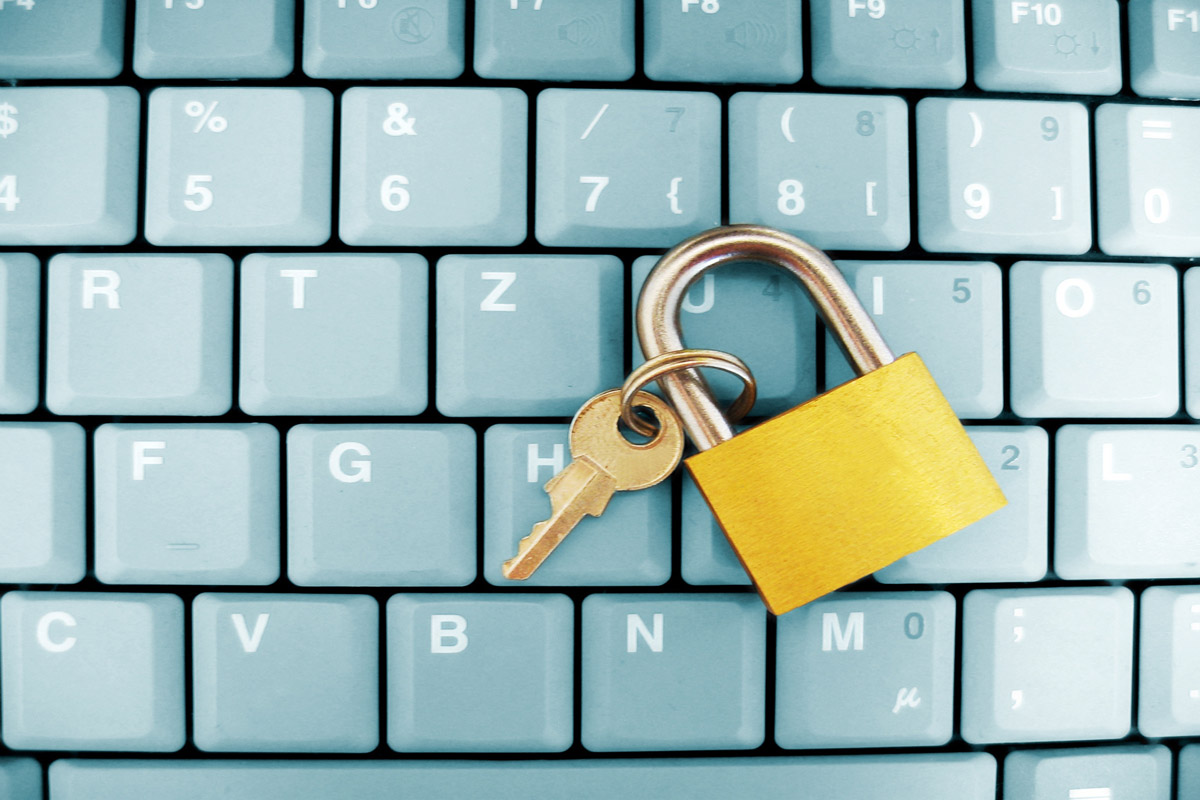Top 10 security tips for remote working
If you're working outside of the office, so is your company's data. Make sure it's secure.

Remote working may be a great way to do business, but are you totally aware of all the threats?
1. The computer
One of the key aspects of [a
href="https://www.itpro.com/120271/it-security-must-adapt-to-remote-working" target="_blank"]remote working[/a] is to make sure that you are using an approved computer, and that all the right protection is in place.
By using your own personal computer although convenient for you - could make it much easier for you to introduce malware into your company's network. Clearly this won't protect you when something goes wrong.
2. Update your computer
Even if you are using a laptop or mobile device that your company approves, the organisation is very unlikely to know whether you have kept up to date with your patching.
Sign up today and you will receive a free copy of our Future Focus 2025 report - the leading guidance on AI, cybersecurity and other IT challenges as per 700+ senior executives
The reason why [a
href="https://www.itpro.com/610638/conficker-cost-may-hit-6-2-billion"
target="_blank"]Conficker spread so virulently[/a] is simply because many computers and networks hadn't patched using the adequate updates.
Make sure automatics updates are turned on as well as having the latest up-to-date anti-virus software installed. Business information will be at risk otherwise.
3. Beware hackers and phishing attacks
You may have a different mentality about what emails you open when you are at work, so do the same when you're at home by keeping a close eye on phishing scams by email, websites, social networks or IM messages.
Many criminals will be out there hunting for usernames and passwords. Recent social networking scams on [a
href="https://www.itpro.com/609425/stephen-fry-victim-to-twitter-phishing-attacks" target="_blank"]Twitter[/a] and [a
href="https://www.itpro.com/610724/facebook-confirms-fakebook-phishing-attacks" target="_blank"]Facebook[/a]show that they are evolving from using the traditional Nigerian 419 scam'.
4. Be careful when using social networking
Social networking is a valuable tool when it comes to remote working, with tools such as [a
href="https://www.itpro.com/161343/where-next-for-linkedin"
target="_blank"]LinkedIn[/a], Facebook and even Twitter are all useful for connecting and keeping in touch when you are out of the office.
Although some social networks claim to protect your data and will say you are in a secret' group or forum, good hackers will be able to find ways around this they always do.
5. Practice good policy
Make sure you understand [a
href="https://www.itpro.com/609737/snow-throws-spotlight-on-business-continuity-plans" target="_blank"]your workplace policies[/a] when it comes to blogs and social networks, as this will allow you to avoid any situations which might get you in trouble.
It's the responsibility of company management to make sure that there are strong policies in place, but employees also have responsibilities and they can only follow them if they have the [a
href="https://www.itpro.com/187986/remote-working-is-the-chink-in-the-network-armour" target="_blank"]right training and education[/a].
6. Keep your wireless secured
Remote workers are generally going to use wireless connections with devices like PDAs, smartphones, netbooks and laptops.
However, as workers won't be in the office, it will be their responsibility to make sure that the [a
href="https://www.itpro.com/110522/quarter-of-uk-firms-have-no-wireless-security-policy" target="_blank"]connection they are using is secure[/a].
This could simply mean protecting your connection with a password, or guarding yourself against hackers who try to perform a man in the middle attack.
7. Use encryption technology
Think about using [a
href=https://www.itpro.com/200463/barclays-boosts-keys-to-encryption target="_blank"]encryption[/a] on devices, whether USB, smartphones, laptops or even your home computer.
If you are working with highly classified material, if the worst does go wrong then thieves will be unable to access data if devices are encrypted. Remember the lost USB and laptop horror stories of recent years? Don't add your company's name to that list.
Staff won't always be careful and reliable and mistakes will happen, with the costs of encrypting data likely a lot cheaper than the punishment for anything that goes into the wrong hands.
8. Keep personal and business items separate
Remote working will make it tempting to do personal tasks on company time.
By not blurring the lines between the two, in addition to making sure you are working as efficiently as possible, it will mean that you won't lose personal files if a business device gets lost, or vice versa.
9. Secure collaborative tools
Workers will need to collaborate together, whether using email, phone, IM or [a href="
https://www.itpro.com/610353/hp-gives-sneak-peak-at-skyroom-video-conferencing" target="_blank"]video conferencing[/a] to applications such as [a
href="https://www.itpro.com/610051/microsoft-to-charge-10-for-hosted-sharepoint-and-exchange" target="_blank"]Microsoft Sharepoint[/a].
You won't be in the office, so any confidential business information that is shared may leak' and be shared with a third party. Be careful.
10. Own up to mistakes
If the worst does happen, you're likely to be found out sooner or later, so it pays to be completely open about the mistake so that the company can make moves to solve the problem.
Keeping the problem quiet can only make things worse, and if a business has time to solve the problem rather than find out about it later, it can carry out damage limitation.
-
 Morgan Stanley research warns AI is having a huge impact on jobs
Morgan Stanley research warns AI is having a huge impact on jobsNews Analysis of five sectors highlights an "early warning sign" of AI’s impact on jobs
-
 AI is “forcing a fundamental shift” in data privacy and governance
AI is “forcing a fundamental shift” in data privacy and governanceNews Organizations are working to define and establish the governance structures they need to manage AI responsibly at scale – and budgets are going up
-
 Infosys co-founder Narayana Murthy called for a 70 hour week last year — now he says that’s not enough
Infosys co-founder Narayana Murthy called for a 70 hour week last year — now he says that’s not enoughNews Murthy thinks longer hours akin to China’s '996' approach are the key to success
-
 Microsoft could be preparing for a crackdown on remote work
Microsoft could be preparing for a crackdown on remote workNews The tech giant is the latest to implement stricter policies around hybrid working without requiring a full five days in the office
-
 IT professionals aren’t budging on flexible work demands – and more than half say they’ll quit if employers don’t meet expectations
IT professionals aren’t budging on flexible work demands – and more than half say they’ll quit if employers don’t meet expectationsNews Analysis from Randstad shows 40% of UK-based IT pros have quit over a lack of flexible work options, while 31% of workers globally have done the same.
-
 'The tide seems to be turning towards office attendance': 64% of hybrid business leaders want staff back in the office – but many worry that enforcing RTO mandates will drive employees away
'The tide seems to be turning towards office attendance': 64% of hybrid business leaders want staff back in the office – but many worry that enforcing RTO mandates will drive employees awayAnalysis Many UK business leaders want their staff back in the office more frequently, but they’re scared to implement return to office (RTO) mandates in fear of worker revolts.
-
 Employees are dead set on flexible working arrangements – three quarters would turn down a role that didn't offer hybrid options as work-life balance becomes more important than pay
Employees are dead set on flexible working arrangements – three quarters would turn down a role that didn't offer hybrid options as work-life balance becomes more important than payNews New research shows workers are increasingly demanding flexible working arrangements from employers.
-
 Nearly half of tech workers are seeking new roles – declining employee benefits and reduced flexible working options have staff looking elsewhere
Nearly half of tech workers are seeking new roles – declining employee benefits and reduced flexible working options have staff looking elsewhereNews While salaries are rising for tech workers, other benefits are in decline, leading to a fall in job satisfaction
-
 Untethered: How CIOs and CISOs are paving the way for the new hybrid workforce
Untethered: How CIOs and CISOs are paving the way for the new hybrid workforceWhitepaper Effective techniques to transition from exposed legacy infrastructure to an effective zero trust strategy
-
 Unified endpoint management and security in a work-from-anywhere world
Unified endpoint management and security in a work-from-anywhere worldWhitepaper Learn how to converge endpoint management and security processes and systems to drive efficiency and reduce risk